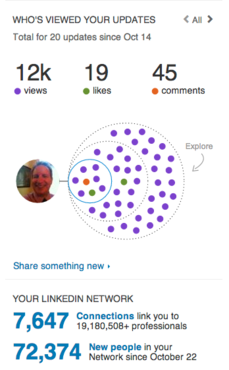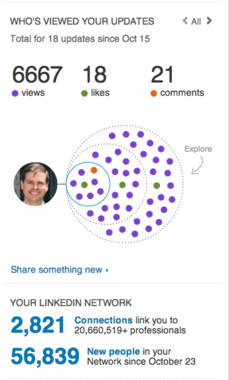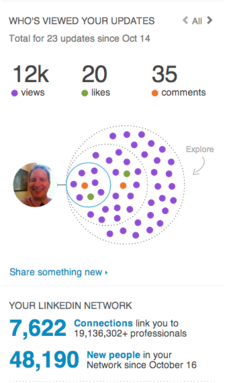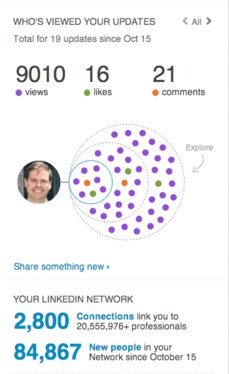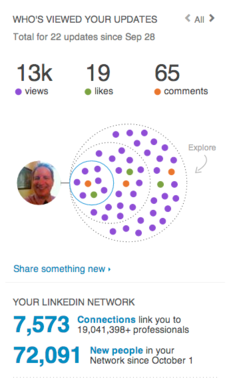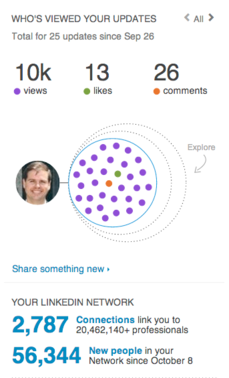Along with the leaders of several Nevada-based franchise companies, I was interviewed for a feature story in the October issue of Nevada Business Magazine. The story is reprinted below, with permission from the magazine.
Since 1985, Reno-headquartered franchisor, Port of Subs Inc., has sold licenses to entrepreneurs to independently own and operate its made-fresh-to-order sandwich shops, in accordance with the brand and the parent companies' wishes.
Today, the corporation has 108 franchisees in addition to 35 of its own locations, spread throughout the western U.S., and it continues to expand. Mike Powell, the president, attributes Port of Subs' success to the business' operating model that 'ensures longevity and profitability,' perfected by the founder John Larsen; its strong product; a market segment with broad appeal; and its franchisees and their commitment.
"When you have that franchisor-franchisee relationship, it's very much like a marriage," Powell added. "There are things that both parties should do. As long as each does what they're supposed to do, then you have a pretty good relationship. If one or the other does something they shouldn't do, it will provide strain on that relationship."
Franchising has proven to work well with certain types of businesses, like those in the restaurant, lodging and retail industries. Think McDonald's, Super 8 and U-Haul. But it also fits nicely with some service businesses, such as home healthcare (Comfort Keepers), tax preparation (H&R Block), hair cutting (Great Clips), house cleaning (Merry Maids) and more, said Matthew Kreutzer, attorney and partner at Armstrong Teasdale who specializes in franchise and distribution law. He maintains a franchising blog and works out of the firm's Las Vegas office.
Along with Port of Subs, some of Nevada-based franchisors include: U-Swirl--frozen yogurt (Henderson), ActionCoach--business coaching (Las Vegas), Sunset Tan--tanning (Las Vegas), Tutoring Club--academic tutoring (Henderson) and Kaia F.I.T.--women's fitness boot camps (Carson City).
However, franchising--"the franchise relationship and the act of selling and growing a network through licensees, through franchisees," according to Kreutzer, isn't ideal for every company. Certainly, the executives of numerous chains like Starbucks, OfficeMax and Target have opted out, choosing instead to pursue growth internally and retain ownership and management of each of their locations.
Additionally, not all franchise systems can survive, particularly if the market becomes oversaturated with one business type.
"It's not easy. Many times they (franchisees) are underfinanced, understaffed and not as knowledgeable as they should be," said Debbie Shwetz, the co-founder and co-owner with Dena Tripp of Nothing Bundt Cakes, a Las Vegas franchising company that sells handmade bundt cakes of various sizes, from bite-sized "Bundtinis" to tiered cakes.
Shwetz and Tripp initially were hesitant to pursue franchising.
"We were a little afraid of it, afraid of the investment, afraid of the fact that we didn't know anything about it, how to do it and we were afraid of the litigation side of it," Shwetz said. "But we were very interested in growing the company with people who were interested in it."
So the two researched it voraciously and hired a franchising consulting firm, The iFranchise Group, in Chicago, to help them establish it correctly. Nothing Bundt Cakes, launched in 1998, opened its first franchise in 2007 in Poway, Calif. Today, six years later, it has 70 open locations throughout the U.S. and another 33 signed and in progress.
"Isn't it amazing to think we started in our kitchen, and here we are?" Shwetz asked.
Starting the Relationship
Prospective franchisees typically are people who are aware of and like a particular brand or concept, Kreutzer said. They may be a customer or know a franchisee. Other ways of connecting are through brokers and lead generators.
Finding quality leads is the biggest problem for the Las Vegas-based, dog training company, Sit Means Sit. Although founded by CEO Fred Hassen in 1998, the company didn't become a franchisor until 2009. Previously, it had offered its associates a one-year, merchandise license agreement. According to company executives, they switched to franchising because they believed it afforded more value both to the individual business owner and the parent company. In four years, Sit Means Sit expanded to 77 home-based franchises in 29 states and one in Canada.
"We can sell anybody, we can teach anybody and we can help anybody be successful; but we need a quality person to start with," said Alfredo Rivera, the president. "If we get a quality lead, it's great."
It's difficult for franchisors to find in a prospective franchisee a balance between an entrepreneurial spirit, the desire to develop and operate a successful business, along with a commitment to following the required systems and procedures.
"That's the toughest challenge," Powell said, "marrying the two strengths and ending up with a franchisee that is really good at both things. If you get somebody who is a little too far one way or the other, inherently you'll have some struggles."
The next steps for an entrepreneur opening their own franchise vary from company to company. Typically, though, the franchisor finds a way to gauge the prospective franchisee's interest, and if substantial, may require some type of pre-qualification process followed by providing the candidate with company information.
Subsequently, the franchisor gives the lead a franchise disclosure document, which describes the investment and contains the franchise agreement. Port of Subs' inch-thick document, for instance, contains everything from corporate financial information to costs for building new restaurants.
"It's a very complicated and in-depth document, but it provides a prospective franchisee hopefully what they need to know in order to try to make an informed business decision," Powell said.
By law, the recipient has 14 calendar days to review that disclosure document before either party can move forward, Kreutzer said.
The next steps involve signing the contract, which tend to be complex; agreeing on an existing or new location (if applicable) and the franchisee paying the required fees, not necessarily in that order.
Fees differ among companies, as do the times at which the franchisee pays them. The initial franchise fee is what the prospective franchisee pays to get started in the business, Kreutzer said. It usually ranges from $20,000 and $40,000, with most around $30,000. Other upfront fees might be required, say, for initial inventory or even training.
Franchisees also will pay a franchise, or royalty, fee to their franchisor. These can be structured differently, but most often, it's a percentage, typically between 4 and 10 percent, of the franchisee's gross revenue. They also usually pay an advertising fee, again, generally a percentage, 1 to 2 percent, of gross revenue.
With Sit Means Sit, for example, a prospective franchisee pays a non-refundable $1,500 deposit when the parties agree on a trade area, essentially the zip code in which the person lives, Rivera said. Then the company runs background and credit checks and, if acceptable, creates a license agreement. Once the contract is signed, the franchisee pays $15,000 (minus the $1,500 deposit) before heading to Hassen's training school. The franchise license is good for 10 years, and the franchisee pays a monthly royalty of $500 for that duration.
Finally, the franchisees undergo training, which can last anywhere from three days to a month to learn how to operate the business, Kreutzer said. Port of Subs, for instance, mandates that two individuals receive training, four weeks for the primary operator and two weeks for a second person. The entire franchise establishment process, from initial inquiry to opening, can take only months or, if it involves constructing a new building, up to 18 months or longer.
The Pros and Cons
Franchising allows the franchisor to grow their brand or concept rapidly, without the capital and overhead required to add company-owned locations--the primary advantage.
"The franchisee has to come up with the cash," Powell said. "From a brand building standpoint, let's open restaurants. From a capital standpoint, it is a much less intensive project."
For Sit Means Sit, the greatest advantage is having a captive audience for the company's merchandise--dog training equipment, collars, accessories, apparel and more--its greatest revenue generator, Rivera said.
Another plus is the influx into the company of people with specific knowledge and experience, say, involvement in a particular community, who can help grow the brand.
"If you choose the right people, you're working with really smart people who make improvements to your concept," Shwetz said. "That's really fun."
For franchisees, association with a parent company offers a proven concept and instant brand recognition and allows them to be part of a company they love. The franchisee doesn't have to start the business from scratch, figuring out how to run it most efficiently and doesn't have to go it alone. Franchisors, in general, teach them what they need to know and provide ongoing assistance, often in the form of marketing, additional training, seminars, conference calls, annual meetings and the like. Franchisees also have an existing network of co-franchisees with whom they can seek or share advice and information and collaborate.
"Good franchise systems have spent years and years and years perfecting the way they do business to maximize profit and maximize business," Kreutzer said. "It may be very well worth it to you to be taught all the lessons they've learned, so you don't have to learn them yourself. There is a value proposition there."
Opening a franchise is less risky than a new business startup.
"That's the primary reason that somebody who wants to go into business for themselves but not by themselves," Powell said. "That's the primary reason to associate yourself with a great franchise concept."
Some franchise systems like Sit Means Sit allow their franchisees some degree of autonomy while working within the parameters the franchisor dictates. For instance, the dog training company allows its franchisees to set their own prices and get creative with their marketing materials like fliers and videos as long as they incorporate the required information and graphics and obtain franchisor approval.
"It's been very beneficial for the success of our business," Rivera said. "[The franchisees] really like it a lot more."
On the other hand, franchising has its downsides. For the franchisor, limited control over each location is one.
"You will have the ability to ensure that your quality standards are maintained, but you can't be everywhere at once," Kreutzer said. "You have to be able to cede some of that control to other people."
Sometimes franchisors choose people who don't work out to be ideal franchisees. Sometimes franchisees sue their franchisor. The legal fees required just to keep the franchise system operating can be steep.
For franchisees, having to follow the rules set by the parent company can be cumbersome, especially for those with an entrepreneurial spirit. Oftentimes, franchisees can't express individuality to the extend they would prefer. Shwetz said sometimes Nothing Bundt Cakes franchisees get disillusioned with how long the company takes to roll out a new product or sometimes they want to sell something they think would work in their particular region, but it's not ideal for the entire system because customers expect consistency from a brand.
"There are just times when the franchisor says no, and the franchisor has that right," she added. "That can be frustrating for the franchisee because they've invested the time and the money."
Another disadvantage is being limited to a certain region, as is the case with Sit Means Sit. A franchisee can't operate outside of their trade area if it's owned by another franchisee. They must pass on any referrals for that area to the rightful franchisee.
Today, franchise systems face tight capital markets, and getting a loan remains difficult, Powell said. This inhibits franchisors' and franchisees' ability to grow.
The Affordable Care Act and the related costs about to kick in also are having an impact, causing franchisors to be cautious about growth until they know how their bottom lines ultimately will be impacted. "It gives [the franchisor] cause to slow down and say, okay, the financial model may be different next year or in 2015, 2016 or later," Powell added.
Despite the inherent and external challenges, however, business owners like Nothing Bundt Cakes' Shwetz enjoy franchising.
"I love the challenge of it," she said. "I love the industry. But I really, really love the people."
If you are interested in knowing more about franchising, connect with me on LinkedIn and let's talk.




